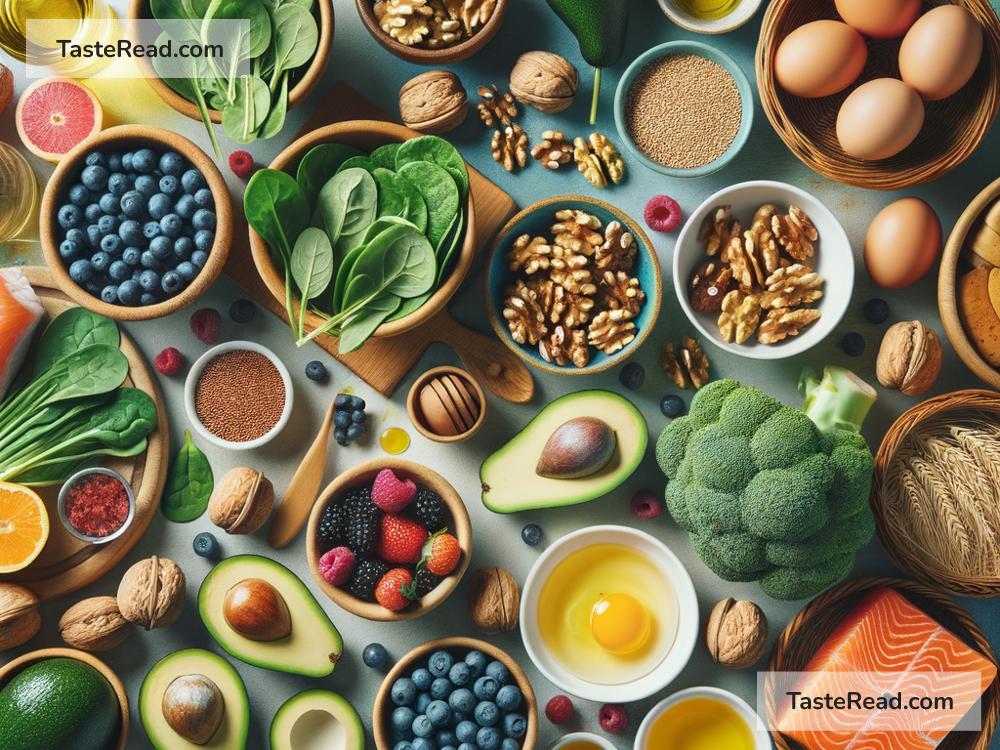Foods for Reducing Fertility Issues: A Simple Guide
Fertility plays a big role in helping couples start their families. While it’s not always easy, and many factors can affect fertility, diet can be an important part of the solution. Research has shown that eating the right foods may improve reproductive health for both men and women. In this blog, we’ll explore simple but effective ways to enhance fertility through nutritious and wholesome foods.
Why Food Matters for Fertility
Your body needs nutrients to function properly, and this includes the reproductive system. Hormones, egg quality, sperm health, and even the proper functioning of organs like ovaries, testes, and the uterus depend on vitamins, minerals, and other essential compounds from food. This means that what you eat can directly affect the likelihood of conceiving. By eating foods rich in nutrients that promote reproductive health, you can improve your chances of fertility and give your body the support it needs.
Foods to Boost Fertility
Here are some types of foods that have been shown to improve fertility:
1. Leafy Green Vegetables
Dark, leafy greens like spinach, kale, and Swiss chard are packed with important nutrients, including folate. Folate is a B vitamin that helps create healthy eggs and sperm, and it reduces the risk of birth defects during pregnancy. Women trying to conceive should include these vegetables in their meals to support reproductive health.
2. Berries
Strawberries, blueberries, raspberries, and blackberries are rich in antioxidants, which protect eggs and sperm from damage caused by free radicals. Antioxidants play a crucial role in keeping reproductive cells healthy and functioning well. Try adding a handful of berries to your morning oatmeal or afternoon snack.
3. Fertility-Friendly Fats (Avocados, Nuts, and Seeds)
Healthy fats, such as those found in avocados, walnuts, almonds, flaxseeds, and chia seeds, are essential for hormone production. Hormonal balance is crucial for fertility because it regulates ovulation in women and sperm production in men. Include these healthy fats as part of your daily diet, but remember to consume them in moderation, as they are calorie-dense.
4. Whole Grains
Whole grains like quinoa, brown rice, barley, and oats are a better choice than refined grains (such as white bread and pasta). Whole grains provide complex carbohydrates that keep your blood sugar steady, which is important for hormone balance. Insulin spikes caused by sugary or processed foods can disrupt reproductive hormones.
5. High-Quality Protein
Protein is essential for the creation of cells and tissues, including those involved in reproduction. Choose healthy sources of protein like eggs, chicken, fish, tofu, lentils, chickpeas, and beans. Avoid processed meats, which may negatively affect fertility. For men, zinc-rich proteins like shellfish and lean red meat can help improve sperm quality.
6. Dairy Products
Full-fat dairy products, like whole milk, yogurt, and cheese, may be better than low-fat options for fertility. Studies suggest that women who consume full-fat dairy products have a lower risk of ovulation problems. Enjoy full-fat yogurt with berries or whole milk as part of a balanced diet.
7. Fertility-Boosting Fruits
Fruits like oranges, grapefruit, and lemons provide vitamin C, which boosts immune health and may improve the function of reproductive cells. Additionally, bananas are known for their vitamin B6 content, which helps regulate menstrual cycles and supports sperm health.
8. Iron-Rich Foods
Iron is crucial for women who want to conceive as it helps build healthy blood cells and reduces the risk of infertility caused by ovulation problems. Add iron-rich foods like spinach, lentils, and lean red meat to your meals. Pair these foods with vitamin C-rich foods (like tomatoes or citrus fruits) to help your body absorb the iron better.
9. Omega-3 Fatty Acids
Omega-3 fats, found in fatty fish like salmon, mackerel, and sardines, as well as in walnuts and flaxseeds, play a key role in regulating hormones. They also improve blood flow to reproductive organs, supporting egg and sperm health. Try to include omega-3s in your diet at least twice a week.
10. Water and Hydration
Although it’s not technically a food, staying properly hydrated is crucial for fertility. Water supports healthy cervical mucus production, which is needed for sperm to travel easily toward the egg. Aim to drink plenty of water, especially if you’re trying to conceive.
Foods to Avoid for Better Fertility
While adding fertility-friendly foods to your diet, it’s equally important to cut back on foods that can hurt your chances of conceiving. Avoid excessive sugar, processed snacks, junk food, trans fats, and high-caffeine drinks, as they may disrupt hormone balance or harm reproductive cell health.
Final Thoughts
Fertility issues can be stressful, but making small dietary changes can have a big impact on your reproductive health. By eating leafy greens, berries, healthy fats, whole grains, proteins, and omega-3-rich foods, you give your body the nutrients it needs for better fertility. Remember that nutrition isn’t the only factor affecting fertility—you also need to manage stress, maintain a healthy weight, and consult a healthcare provider if you face ongoing difficulties. With the right diet and lifestyle habits, you can support your fertility journey and work toward your goal of starting a family.


